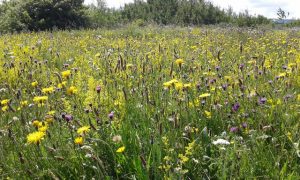Bringing together landowners who could offer environmental services with developers who need to offset carbon costs
.
There’s a lot of uncertainty facing farmers:
The Agriculture Bill and the future for England’s farmers – Vision Group for Sidmouth
At the same time, they are expected to reduce the amount of carbon they use:
Net-zero agriculture by 2050? – Vision Group for Sidmouth
However, there are proposals that demands under the new Agriculture Bill for ‘environmental services’ could be matched by demands under the Environment Bill that developers provide more biodiversity:
Biodiversity Net Gain – Vision Group for Sidmouth
.
Agronomist Lucy de la Pasture reports:
.
Last Word – Are you ready to farm carbon?
There’s something that seems a little bit wrong in a world where countries commit to reaching a net zero position but in the next breath are heralding the day when Tim-Tams from the other side of the world are on the supermarket shelves and meat is being flown across the Atlantic. I’ve been struggling to square the circle because from an environmental perspective it just makes no sense. But perhaps there’s a cunning (or should I say Cummings) plan
 Living in a world where politics has become like a mixture of Black Adder and Austen Powers, businesses across the board are finding it difficult to plan for the future, and none more so than agriculture where a wholesale change is already underway with the passage of the Agriculture Bill. Even greater change is likely depending on the trade agreements struck across the world…
Living in a world where politics has become like a mixture of Black Adder and Austen Powers, businesses across the board are finding it difficult to plan for the future, and none more so than agriculture where a wholesale change is already underway with the passage of the Agriculture Bill. Even greater change is likely depending on the trade agreements struck across the world…
An interesting talk by Prof David Hill of The Environment Bank explained how it could bring together landowners who could offer environmental services – such as long-term wildflower meadows – with developers who needed to offset carbon cost. The intention is to set up large-scale habitat banks under 30-year conservation credit agreements and these could be for long-term unimproved grassland or wildflower meadows, wood meadows, woodlands, wetlands or rewilding – each of which will be assessed for its value in terms of conservation credits…